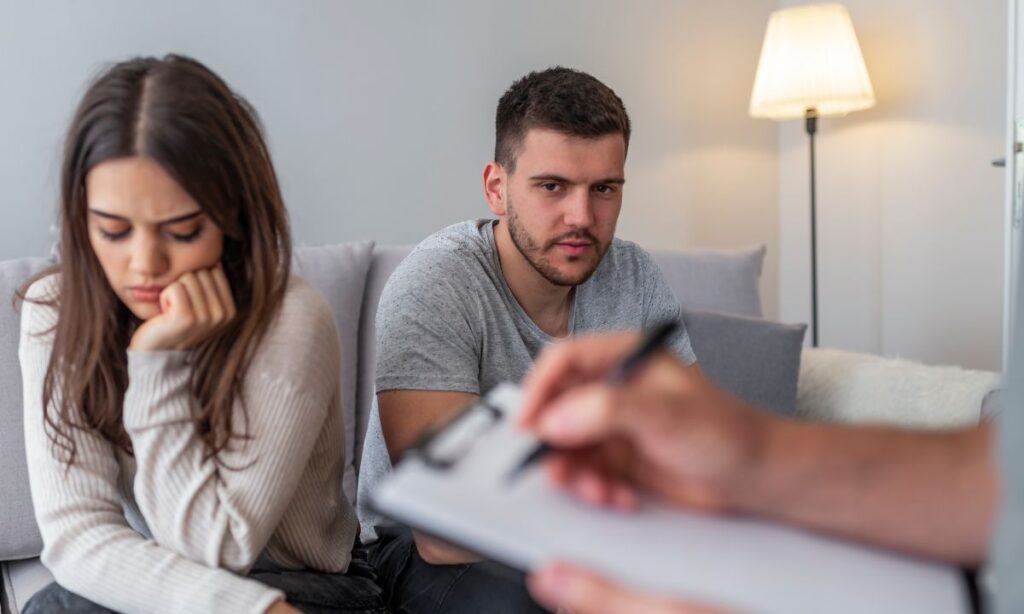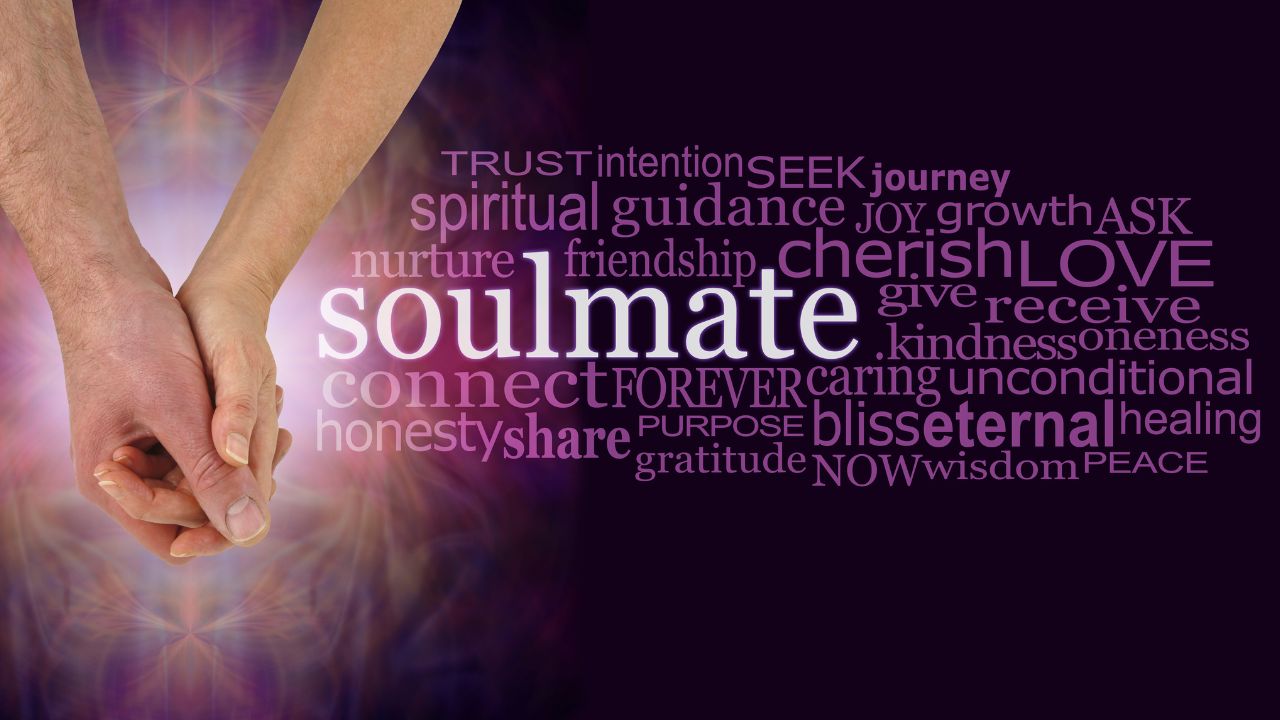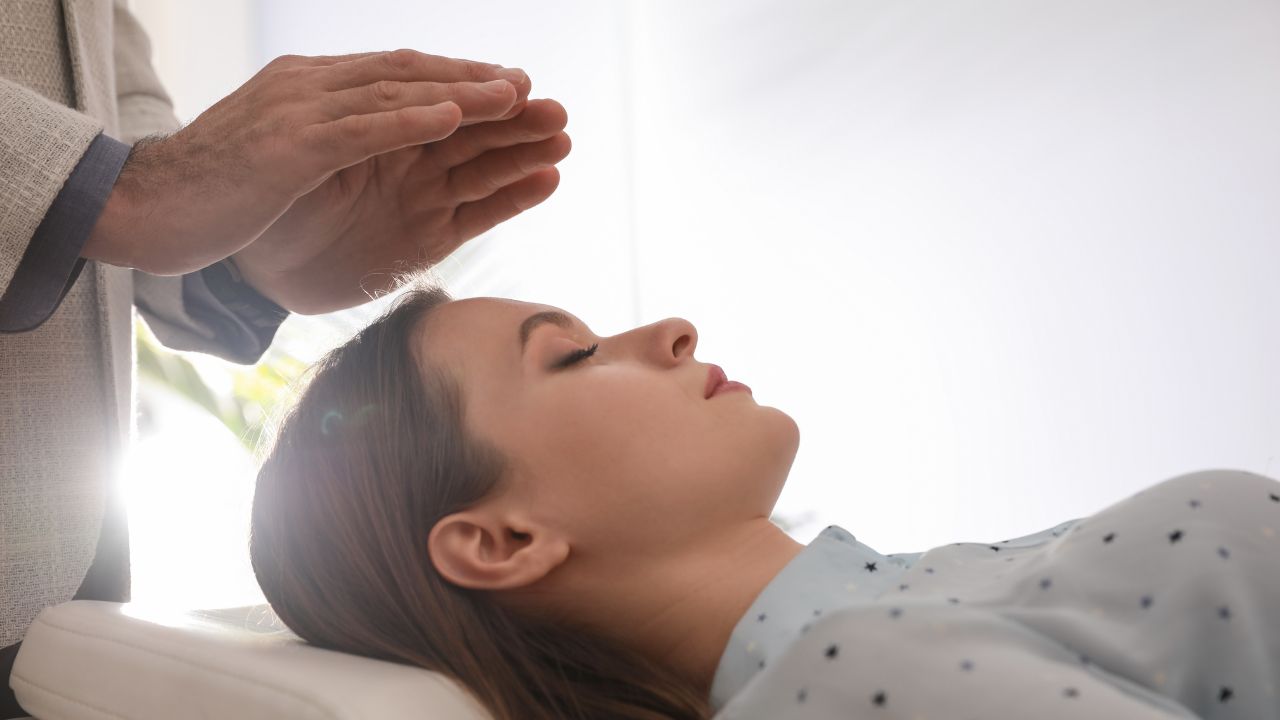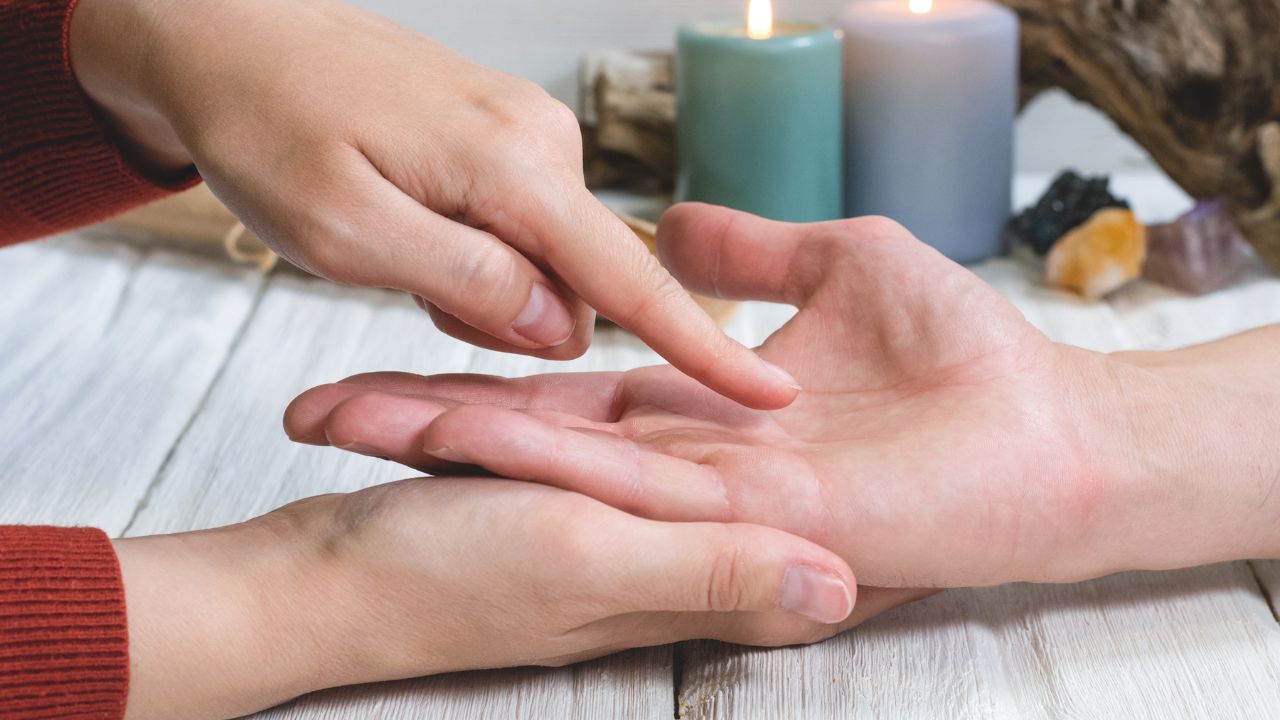Date
- 07.02.23
What is couple counseling?
Couples counseling, also known as marriage counseling, is a type of counseling for intimate partners. It involves the exploration of any conflicts between the partners, is often short term, and focuses on specific problems. Other goals of couples counseling are to improve communication and interactions and to strengthen relationships.
Couples counseling is sometimes referred to as couples therapy or marriage therapy, but the terms “therapy” and “counseling,” actually, are different.
Every couple seeks counseling for different reasons. Some want to make a stronger relationship with their better half, while others want to learn the tools to help them overcome core issues. Couples counseling teaches effective communication, especially in times of conflict, while creating a safe and neutral space for couples to hash out their enterprises. Before walking into your first session, it’s recommended to write out couples counseling questions to ask your therapist. This will give your counselor a better idea of your pretensions, and insure you don’t forget to ask what’s on your mind. couple counseling
The benefits of couple counseling
important like other forms of therapy, couples counseling looks different for every couple. It can help you learn several effects similar as
- Your triggers
- How to resolve conflicts
- Effective communication tactics
- Processing trust issues
- Setting boundaries
- Planning for your future
It can also help with anxiety, wrathfulness operation, internal health challenges, attachment issues, life transitions, and further.
REGISTER FOR YOUR COUPLE COUNSELING SESSION NOW
Questions to ask in marriage comforting
What questions are asked in couples counseling? This depends on the couple and their unique issues. We’ve put together the most popular questions to ask in marriage comforting, and some of the most common problems to address.
- What are the core or recreating issues in our relationship?
In every relationship, subtle dissensions can lead to more significant issues if left unsolved. That’s why it’s essential to use your comforting session to address these early on before they come larger issues. You and your better half might have different ideas of what those issues are so hear each other out. This process requires both better halves to be vulnerable and open to resolving. For illustration, one of the enterprises may be that you and your partner don’t spend enough quality time together. What does quality time mean to each person? What does that look like? And how can you come to a resolution?
- Which issues are the most critical in couples?
A therapist will help you answer this question once you have laid out all of your enterprises. They will help prioritize your enterprises grounded on which bones you and your partner believe should be addressed first, and what could potentially be the biggest root cause of your issues.
- Which requirements aren’t being met?
Every person has unique requirements in a relationship. And when they’re not being met, it can lead to passions of resentment and misreading.
requirements look different to everyone, but some exemplifications include
- Quality time
- A sense of security
- Physical and emotional closeness
- particular Space
- Acts of service
- confirmation
- Acceptance
- Respect
These unmet requirements can beget dissatisfaction in any relationship, but there’s opportunity. exploration supports that partaking in marriage and couples counseling can lead to advanced connubial and relationship satisfaction. couple counseling
- What are your anticipated issues of remedy?
This question can be bandied together intimately before starting the remedy, or it can be a great starting point to kick off your first session with your therapist. No matter how you choose to attack it, it’s pivotal to know whether you and your mate are on the same path in terms of what you want from comfort. Clearing this up beforehand reduces surprises and walls to your growth.
- Why do you want this to work?
One of the most beautiful effects of taking the trouble to attend couples counseling is that it shows you both still care, and you want your relationship to work. The answer to this question can help your counselor produce a path of resolution, or determine whether the relationship should continue. The responses to this question are varied, and there’s no shame in your answer. For some, it could be because you still love your partner and don’t want to lose them. But for others, you may stay together for the kiddies or fiscal reasons.
- Are your prospects for each other reasonable and easily understood?
Having prospects from your partner is normal but when they’re unreasonable, it can lead to passions of resentment and unworthiness.
Some exemplifications of unrealistic prospects include
- No arguing means a good relationship
- Your partner should know what you’re feeling without you communicating it
- Your better half should always agree with you
- Your better half should spend all their free time with you
This is where a couples counselor can offer a neutral outside perspective. They can educate you to set healthy prospects, communicate easily and hypercritically with your better half, and determine an action plan.
- What has changed in the relationship?
occasionally it can feel like issues arise putatively out of nowhere. It’s hard to go back and pinpoint what changed, and why it feels like you’re suddenly fighting constantly. A therapist can help you walk through your relationship history, produce a participated understanding of how the relationship has evolved, and find which changes are the implicit root of your problems.
Couples counseling questionnaire — how to find the right therapist for you
Chancing for the right counselor can be a challenge. They should have the skillset for your issues, make you feel safe and comfortable, and feel like a good fit for your personality. Try asking these couples counseling questions to determine whether they’re someone you and your better half can work with in the long- term.
- What’s your comforting process?
Not all therapists follow the same processes and styles. Some may want to meet with you collectively at times, whereas others may feel it’s stylish to always meet as a couple. Asking this question ahead of time can help you determine whether the counselor’s system feels right for your relationship. A counselor may use several different modes of therapy, including but not limited to
- Reflective listening An exercise that has couples use “ I ” statements, rather than “ you ” statements. For illustration, “ I feel misknew when you ”
- Narrative therapy A practice that allows couples to describe their issues in the form of chronicling and rewriting their stories to see any inconsistencies and contradictions.
- Gottman Method A popular system used by couples counselors that help the couple manage their conflicts and other issues similar to closeness and relationship adaptations.
- Do you have experience with problems like ours?
You may feel more confident with a counselor who has experience guiding couples with analogous conflicts. This can be particularly helpful with further complex issues similar to dependence or struggles with internal well-being. Indeed if the therapist doesn’t have direct experience with circumstances analogous to yours, frequently, a professed therapist will be suitable to pull from their once-customer experience to help couples work through their problems. Or, they may relate you to a different counselor who has the specific experience you’re looking for. The stylish way to find out is to take the first step and connect with a counselor.
SUBSCRIBE TO OUR YOUTUBE CHANNEL
- How long will we need to be in therapy?
Some couples anticipate that just many sessions will break their issues. And although that may be true for some couples, asking about a timeline allows your counselor to walk you through the issues that need to be addressed and how long it may take.
- What are some effects we can do outside of couple counseling sessions that may help?
Asking for schoolwork can make your sessions more productive and give you pretensions to work towards between sessions. You may be asked to keep a journal or complete talking exercises with your partner. At your coming session, you can talk to your counselor about your experience — creating new openings for communication.
Couple Counseling vs. Couple Therapy
“Counseling” and “therapy” are terms that are sometimes used interchangeably, but there are differences in meaning between the two.
Therapy (also known as psychotherapy or talk therapy) is used to treat mental health conditions or patterns of behavior, thoughts, or emotions that are dysfunctional. In couples therapy, the process may address a condition such as anxiety or depression of one or both partners and how that condition impacts the relationship. Couples counseling, on the other hand, is generally more focused on relationship challenges like balances of responsibilities and future expectations.
Both couples therapy and couples counseling can help to improve communication and interactions between partners and to strengthen the relationship.
Despite the differences, there is a lot of overlap between the two, and professionals all work differently. For example, some mental health professionals provide both counseling and therapy.




